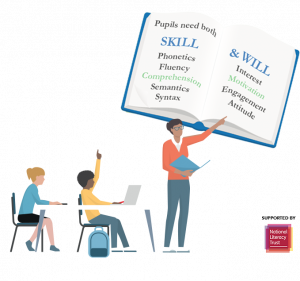Engage Pupils Through Non-Fiction
Many students struggle to engage with reading as they are simply not motivated to dive into the latest story books.
For these students, non-fiction could be the answer to inciting reading for pleasure. Ensuring all students have access to materials they respond to positively, enables them to maximise the progression of their vital reading comprehension skills.
Students respond positively to the choice of where to start reading and where to finish and the flexibility to read at their preferred pace, as well as the opportunity to gather new information, identify key facts and be motivated by learning.
ACHIEVE CROSS-CURRICULAR
BENEFITS THROUGH NEWS
Why newspapers are a valuable source of non-fiction

Grow global awareness
Empower with knowledge of the facts
Develop vital skills for cross-curricular success

Inspire reluctant readers
Encourage reading for pleasure
Enhance reading skills

Build confidence voicing opinions
Develop empathy for real people
Be part of an informed news community
PROVEN TO SIGNIFICANTLY ELEVATE CHILDREN’S READING ATTITUDES AND SKILLS
THE AIM: Investigate the impact of introducing First News Education into KS2 classes.
THE SKILL AND WILL OF BECOMING A COMPLETE READER*: The evaluation findings support existing research showing that children need to be motivated to read, as well as having the skills to do so, in order to succeed.
*Igniting a Passion for Reading, Successful Strategies for Building Lifetime Readers by Steven Layne
THE RESEARCH: Independent research carried out by the NLT over 8 weeks in 15 schools across the UK, integrating the newspaper and Activity Sheets into weekly reading.
THE RESULTS: By reading and discussing news regularly, pupils:
Made significantly more progress with their reading comprehension than expected, and developed more complex inference and deduction skills
Developed more confidence in their own reading, and were motivated to read more widely in their own time.







